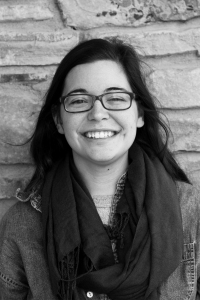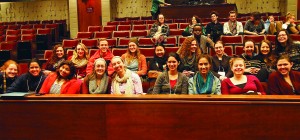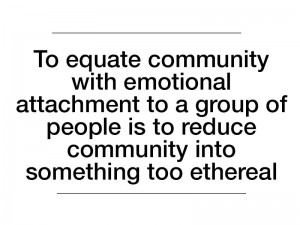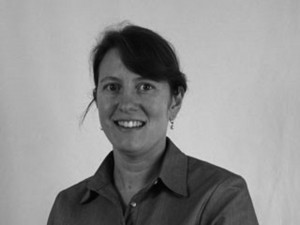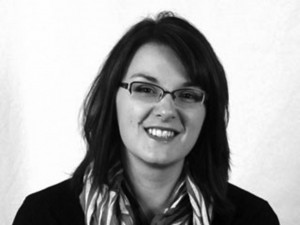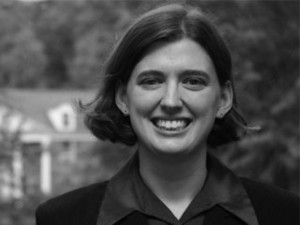By Isabelle Murch
Let’s get the air cleared: I said it. I said our favorite-and-also-least-favorite Houghton word, the one that we love to hate on, but can never find a suitable replacement for. For better or worse, community has become our defining word, printed on Pres. Mullen t-shirts, made into memes, and always followed by a laugh.
Community is a harmless word when it’s easy. And it’s great when it benefits us. It’s not hard to invest our time into late-night adventures or deep conversations. It becomes much harder to be a pro-community place when that community is inconvenient to us, interrupting our goals or daily life.
Some of my favorite stories about Jesus happen when he’s interrupted. In fact, I’m not sure how often Jesus actually gets to where he’s going. Someone always seems to demand his attention. A bleeding woman grabs his cloak. A Roman Centurion begs for his daughter to be healed. A blind man shouts at him from the side of the road. Christ’s ministry revolves around inconvenient people.
But how often do we let Christ’s example shape how we view those around us? Addressing inconvenience isn’t easy, and the busyness of homework, internal and environmental stress, and our personal preferences often take precedence over investing in our community. We remove ourselves from difficult conversations, avoid people we find annoying, and check out of gatherings that don’t suit our purpose.
What’s at stake when we don’t put forth effort? If we look to Christ’s example, I’d say a lot. Think of the Gospel of Matthew, when disciples rebuke parents for bringing their children to Jesus. Instead of standing by his closest friends, Jesus says to them, “Let the little children come to me, and do not hinder them, for the kingdom of heaven belongs to such as these.” Not only does Christ disagree with his friends, he posits that the children, an undervalued population in ancient Judea, will inherit God’s kingdom. This suggests that “the least of these” are not only an acceptable but integral and important part of God’s vision for God’s people.
Jesus seeks out everyone: groups with radical and uncomfortable ideas, exploiters and oppressors, women, disabled people, oppressed racial groups, legalistic religious leaders, blue-collar workers, doubters and worriers and children. The kingdom of God isn’t homogeneous by any stretch of the imagination, and when we act as if the ones worthy of our love and attention are the ones easiest for us to love, we are missing the point. We need to engage with those we find inconvenient and to realize that many times, we are the inconvenience.
In our annual All Hall Meeting, Resident Director Raegan Zelaya likes to make the distinction between a “Renting” versus an “Owning” Mentality. When we live in the residence halls, we can act as if our space is not ours, treating it as temporary and of low value. We don’t care, and we don’t need to. As an owner, though, we carry responsibility. We have to deal with leaks and pests. But, our experience is much richer. We get to carry the pride of our work and care and hold authority in the spaces we’re in. In the same way, we can look at our communities through the lens of a renter or owner. We can rent our time at Houghton, staying away from difficult community while missing out on the joys that a full kingdom of God brings, or we could own our inconveniences, raising the stakes but greatly increasing our return on investment.
How can we practice this? I think all of us can participate in owning our Houghton community. First, we must identify who and what we find “inconvenient.” It might be a person whom we find a little awkward, a group we strongly disagree with, or an experience like chapel or class. Naming and understanding our tendencies can help us identify our biases and learn to combat them. Second, we need to lean in rather than check out. There are plenty of ways we can do this, from being intentional with everyone who crosses our path to putting our phones away during a chapel service. Third, we can work to not only change our behaviors but also our attitudes toward inconvenient people. Interruptions can become opportunities to share Christ’s love, and inconveniences can turn into practices of patience and extending grace to others.
While community lands like a joke to most of our ears, it’s also our most important task during our time on campus. We can choose to check in and out, like a hotel that’s not ours to keep, or we can invest in a home worth having. ★

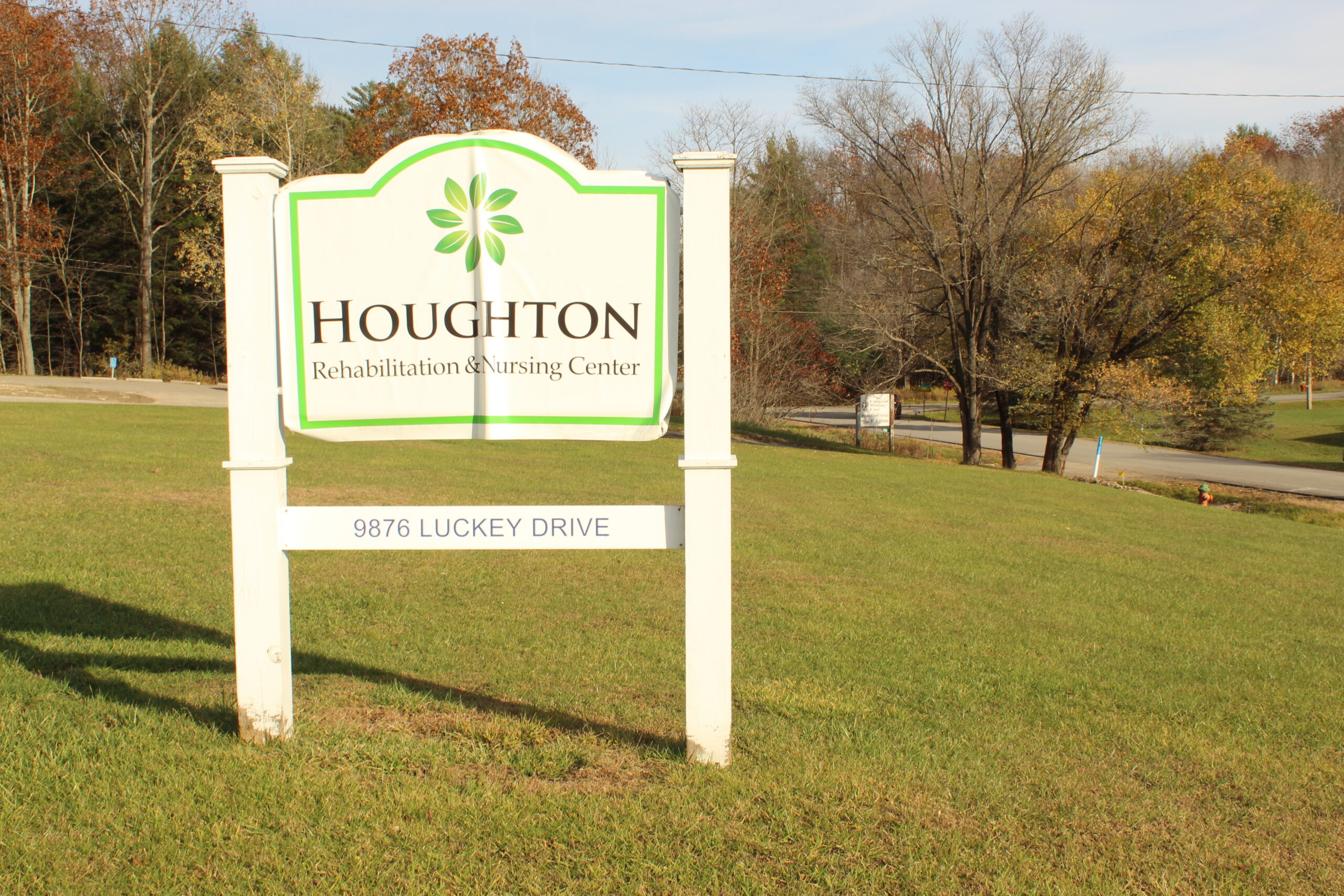

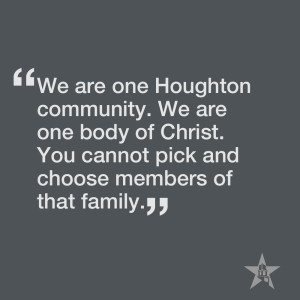 If your belief in the sinfulness of homosexuality thwarts your ability to love a gay person, you may need to reconsider your motives. Hold true to your beliefs, but for the sake of the unity of the church in a time of turmoil, please do not let the Christian acceptance of homophobia get in the way of your Christ-like compassion. You have Christian brothers and sisters who are a part of the LGBTQ+ community. Shouting at them and questioning why they would even want to attend Houghton College has done and will continue to do nothing to strengthen the church. We are one student body. We are one Houghton community. We are one body of Christ. You cannot pick and choose members of that family. We one-hundred percent need to do better. The next time you are about to slander your LGBTQ+ brothers and sisters in Christ, ask yourself when the last time you asked to pray for them was. Ask yourself whether or not you even have a gay friend. Disagree and debate, but for the beauty of the Earth, do not use your differences as an opportunity to inflict pain.
If your belief in the sinfulness of homosexuality thwarts your ability to love a gay person, you may need to reconsider your motives. Hold true to your beliefs, but for the sake of the unity of the church in a time of turmoil, please do not let the Christian acceptance of homophobia get in the way of your Christ-like compassion. You have Christian brothers and sisters who are a part of the LGBTQ+ community. Shouting at them and questioning why they would even want to attend Houghton College has done and will continue to do nothing to strengthen the church. We are one student body. We are one Houghton community. We are one body of Christ. You cannot pick and choose members of that family. We one-hundred percent need to do better. The next time you are about to slander your LGBTQ+ brothers and sisters in Christ, ask yourself when the last time you asked to pray for them was. Ask yourself whether or not you even have a gay friend. Disagree and debate, but for the beauty of the Earth, do not use your differences as an opportunity to inflict pain. My fictional scenario dramatizes the national economic debate called income inequality. Yet, as a whole, the two Genesee Valley towns offer a glimpse into the true root of the cause of income inequality between the new elite class and the lower middle class. While many carelessly characterize Pittsford as greedy, selfish, and very secular, the irony is most affluent towns are following traditional American values more so than their working class counterparts. While we have always had rich people in the US, it appears that cultural norms that once glued us together have created a chasm between the classes. In the 1950s, there weren’t super rich towns. The rich and poor lived together, worshipped together, and sent their children to the same school. Today, the rich live in super zips, also known as the zip codes with the highest per capita income and college graduations in the country; yet, the glue (i.e. education, marriage, religiosity, and community involvement) holding income classes together is coming apart.
My fictional scenario dramatizes the national economic debate called income inequality. Yet, as a whole, the two Genesee Valley towns offer a glimpse into the true root of the cause of income inequality between the new elite class and the lower middle class. While many carelessly characterize Pittsford as greedy, selfish, and very secular, the irony is most affluent towns are following traditional American values more so than their working class counterparts. While we have always had rich people in the US, it appears that cultural norms that once glued us together have created a chasm between the classes. In the 1950s, there weren’t super rich towns. The rich and poor lived together, worshipped together, and sent their children to the same school. Today, the rich live in super zips, also known as the zip codes with the highest per capita income and college graduations in the country; yet, the glue (i.e. education, marriage, religiosity, and community involvement) holding income classes together is coming apart. 